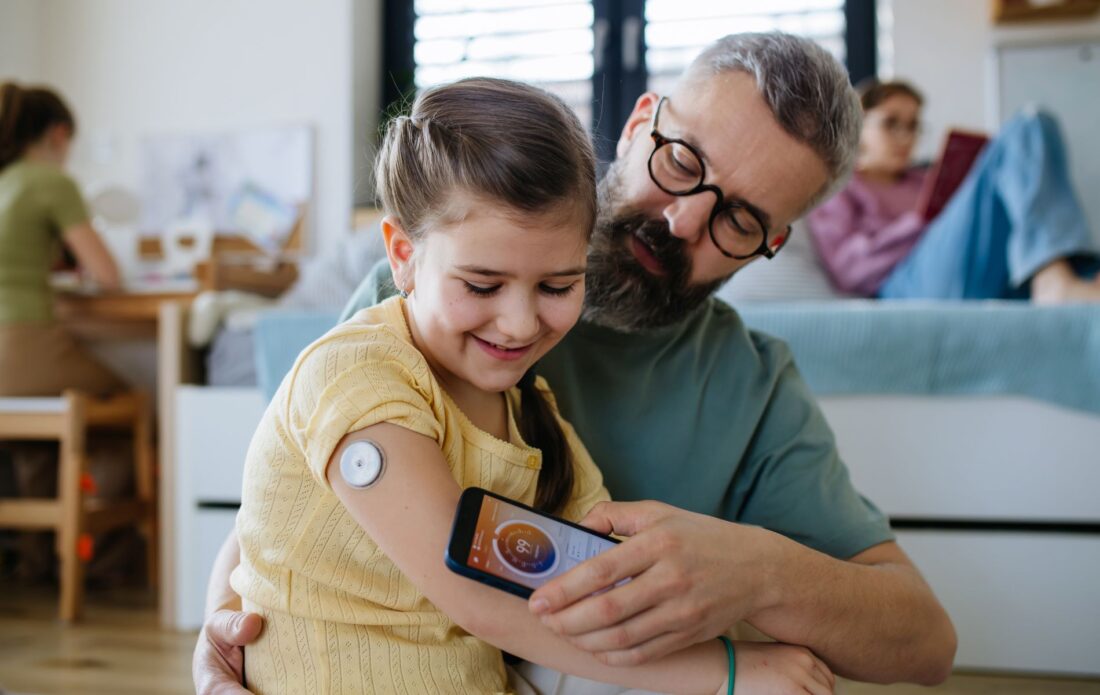Diabetes and Hearing Health: Understanding the Connection
November is a month dedicated to raising awareness about diabetes, with World Diabetes Day taking place on November 14. While most people know that diabetes affects blood sugar, heart health, vision, and nerve function, fewer realize that it can also have a major impact on hearing health.
In Thunder Bay, where both diabetes and hearing loss are prevalent health concerns, it’s especially important to recognize the connection between the two. At Expert Hearing Solutions, we believe that better hearing means better living, and that starts with understanding how conditions like diabetes can affect your ears.
The Link Between Diabetes and Hearing Loss
Studies have shown that people with diabetes are twice as likely to experience hearing loss compared to those without the condition. While the exact reason is still being studied, researchers believe the connection is due to how diabetes affects the blood vessels and nerves in the inner ear.
High blood sugar levels can damage small blood vessels throughout the body. Just like diabetes can damage the eyes, kidneys, and nerves in the hands and feet, it can also damage the delicate structures of the inner ear. These tiny blood vessels supply the cochlea, a crucial part of the auditory system that helps convert sound waves into signals the brain can understand.
When those vessels are damaged, the result can be hearing loss, tinnitus (ringing in the ears), or difficulty processing sound in noisy environments.
Signs of Hearing Loss in People with Diabetes
If you or a loved one lives with diabetes, it’s important to watch for early signs of hearing changes. Some common symptoms include:
-
Frequently asking others to repeat themselves
-
Turning up the volume on the TV or radio louder than others prefer
-
Struggling to follow conversations in noisy places like restaurants or family gatherings
-
Feeling like people are mumbling
-
Experiencing ringing or buzzing in the ears (tinnitus)
These symptoms can develop gradually, which makes them easy to miss. Many people don’t realize how much their hearing has declined until it begins to interfere with daily life.
Why Untreated Hearing Loss Matters
Untreated hearing loss doesn’t just make communication more difficult—it can also impact your overall health and well-being.
-
Mental health: Untreated hearing loss is linked to higher rates of depression and anxiety.
-
Cognitive health: Studies show that hearing loss increases the risk of cognitive decline and dementia.
-
Social isolation: Struggling to hear can cause people to withdraw from conversations and social events.
For people with diabetes, who already have a higher risk of other complications, adding untreated hearing loss can create even more challenges. That’s why regular hearing tests are just as important as eye exams and foot care for those living with diabetes.
The Role of Advanced Hearing Technology
The good news is that modern hearing technology has come a long way. Devices like the Oticon Intent hearing aids don’t just amplify sound—they use 4D sensor technology to adapt to your movements, environment, and conversations.
This means you can hear more naturally, even in challenging situations like:
-
Busy family gatherings
-
Restaurants with lots of background noise
-
Work or school settings with group conversations
-
Outdoor activities where wind and movement affect sound
For people with diabetes who may already face daily health challenges, hearing aids like the Oticon Intent can significantly improve quality of life by reducing strain, improving focus, and keeping you connected to the world around you.
Tinnitus and Diabetes
Many people with diabetes also experience tinnitus, a persistent ringing, buzzing, or humming in the ears. This symptom can make it even harder to concentrate, sleep, or enjoy quiet activities.
Modern hearing aids, including the Oticon Intent, have features designed to help manage tinnitus by balancing external sounds and making the ringing less noticeable. This provides relief and improves overall comfort throughout the day.
Protecting Your Hearing Health with Diabetes
If you’re living with diabetes, here are some important steps you can take to protect your hearing:
-
Get regular hearing tests. Just as you schedule annual eye exams, add a hearing check to your routine care.
-
Manage your blood sugar. Keeping your blood sugar in a healthy range helps reduce the risk of damage to blood vessels in the ears.
-
Avoid noisy environments when possible. Protect your ears from loud sounds by using custom ear protection or avoiding prolonged exposure.
-
Take action early. If you notice changes in your hearing, don’t wait—schedule a test and explore solutions.
Why Choose Expert Hearing Solutions in Thunder Bay
At Expert Hearing Solutions, we understand the unique challenges people with diabetes may face when it comes to hearing health. That’s why we offer:
-
Free, no-obligation hearing tests
-
A 2-week trial of Oticon Intent hearing aids—no deposit required
-
A 100-day, 100% satisfaction guarantee, so you can try advanced hearing aids with complete peace of mind
Our goal is simple: to help you hear better, live better, and enjoy every moment, whether it’s listening to your grandchildren, following conversations at work, or enjoying music again.
If you’re living with diabetes—or caring for someone who is—don’t overlook the importance of hearing health. November is the perfect time to take action.
???? Book your free hearing test today at Expert Hearing Solutions in Thunder Bay.
Experience the difference of Oticon Intent hearing aids with our free trial and discover how advanced technology can improve not just your hearing, but your overall quality of life.

